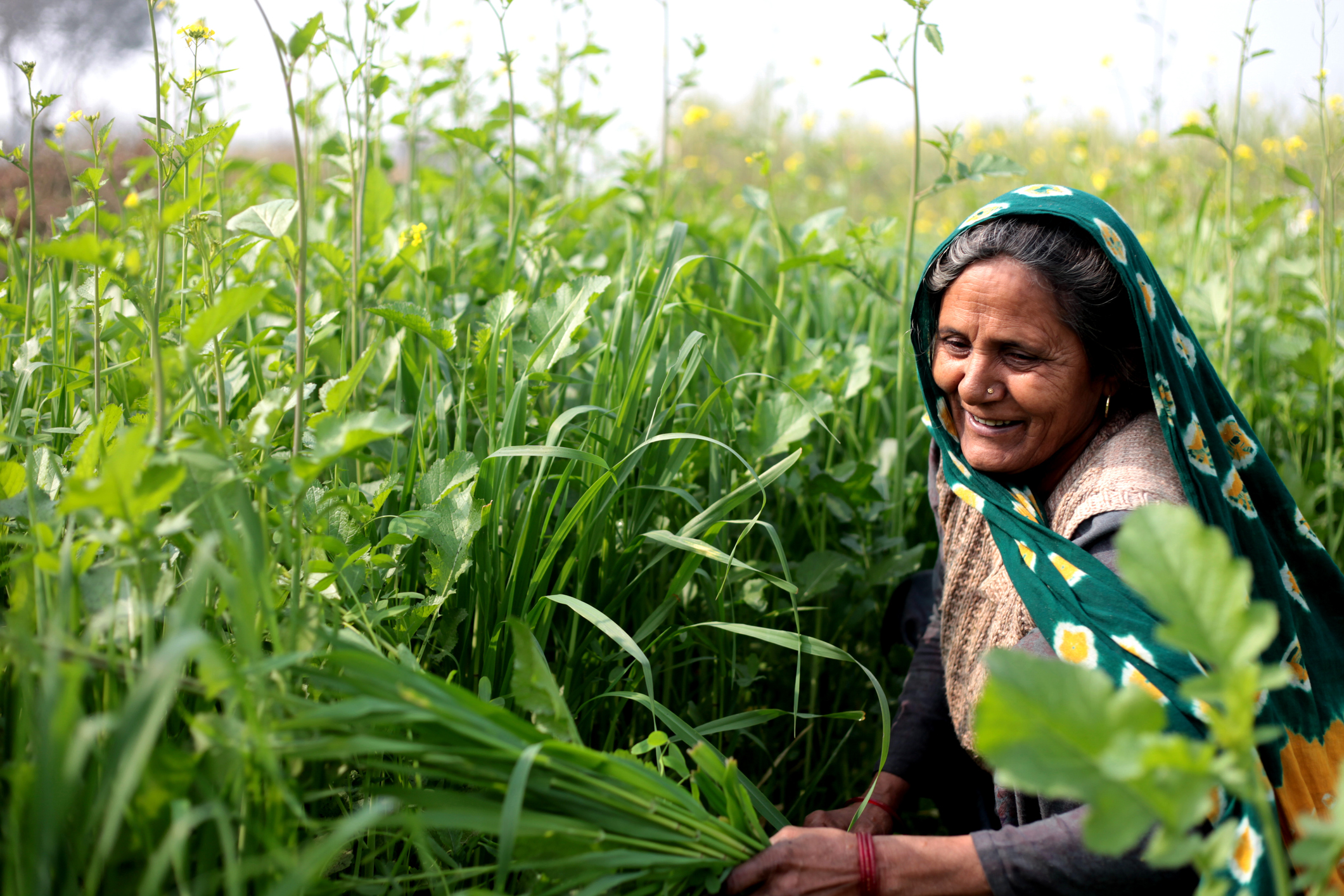Celebrating Earth Day: Empowering Women Farmers Through Climate-Smart Agriculture
On Earth Day, we reflect on the profound relationship between humans and the planet we call home. It’s a day of recognition and understanding the vital need to protect and heal the natural world. At the heart of this relationship, especially in the agrarian pockets of the globe, are the farmers who till the land. In the small village of Unnao, Uttar Pradesh, we find Savita, a figure emblematic of resilience and hope.
Rising with the Sun: A Day in the Life of Savita Devi
Savita begins her day long before the sun graces the horizon in the gentle predawn light. Her small village lies in Unnao, Uttar Pradesh, and she will tell you that her life as a farmer is both gracefully simple and full of challenges. Recently, she lamented, weather patterns have become very difficult to predict—making her crops, once a reliable source of income, now uncertain.
As Savita walked through her crops one morning, she watched as the leaves of her young maize plants wilted. She had seen this before during parched days, bad rain seasons, and due to a lack of quality fertilizer, among other factors. However, things were going to be different after the workshops she had recently attended. These workshops, detailed in a study by Lippman et al. (2022) and offered through her community intervention, introduced her to applied practices such as Integrated Pest Management and Water-Efficient Practices—previously, they were all theoretical.
The value of Climate-Smart Agriculture (CSA) wasn’t just in the improved yields for Savita—it was the sustainability. She could now count on agriculture not just for survival but for a thriving future for women like her. Savita wasn’t merely fighting back against climate change: empowered by knowledge, she was part of a growing movement that was seeing women—who traditionally lead agricultural production—wield challenges into opportunities.
Her story is not unique to her; it is shared by countless women in agriculture across developing nations. These women form the backbone of an industry that feeds nations, with nearly 43% of the agricultural workforce being female. Yet, their narrative is often veiled by the shadows of their toils. The conundrum of climate change has unraveled the predictability of weather patterns, upon which farmers like Savita rely heavily. The wilting leaves of her maize plants are symptomatic of a larger crisis. But hope springs eternal, and for Savita, change came through knowledge.
Embracing Climate-Smart Agriculture
The potential of climate-smart agriculture (CSA) to enhance productivity, resilience to climate change, and reduce emissions is well-documented. However, implementing CSA on a large scale requires accessible dissemination. Studies have shown that targeted knowledge dissemination programs, such as farmer field schools, significantly increase women’s adoption of sustainable practices like integrated pest management (IPM) and water-efficient techniques. For example, smallholder farmers involved in field schools and extension services have demonstrated measurable improvements in their knowledge and practice of climate-resilient rice varieties and botanical pesticides.
Farmer Field Schools: A Platform for Empowerment
Despite significant progress, the research agenda on CSA is far from complete. Few studies adopt a broader perspective on the economic or institutional supports required to achieve large-scale benefits. A forthcoming systematic review encompassed eight impact evaluations, all of which underscored the importance of knowledge dissemination and capacity-building interventions. These studies are united in their recognition of education as a catalyst for agricultural development. They reveal that when farmers—men and women alike—are equipped with knowledge about CSA practices, they are more capable of making informed decisions that enhance their productivity and sustainability.
A notable aspect of these interventions is the use of Farmer Field Schools (FFS). Half of the studies reviewed employed FFS or their adaptations. These schools serve as a hub for active learning, where farmers can gain hands-on experience and access to new technologies. Notably, the review highlights that women’s active participation in these learning environments is pivotal. When women are involved, the results are telling: increased knowledge retention, improved decision-making, and greater uptake of recommended CSA practices. The findings of the review indicate that gender-responsive training leads to a higher adoption rate of CSA practices among women. Practices like integrated pest management strategies, stress-tolerant rice varieties, and the use of botanical pesticides are particularly notable. These practices not only reduce reliance on chemical inputs but also promote sustainability and resilience to climate change.
Need to bridge the Knowledge Gap
While the interventions have successfully increased knowledge and adoption of CSA practices, there’s a call for further research. Questions remain about the differential effectiveness of these approaches for women and men. Future studies should be more comprehensive and consider gender-specific factors that may influence the adoption of CSA practices.
Amplify Impact: Advocate for Inclusive Research
On this Earth Day, let us commit to increasing both the scope and depth of agricultural research in order to not only provide women farmers with the knowledge but also the capacity to actualize CSA. By adopting a gender perspective on environmental stewardship, we are empowering women to become world leaders in developing a resilient and flourishing planet. In our commitment to research, we ensure that CSA is not just theoretical but a practical, useful tool for those experiencing climate challenges firsthand. Let us invest in our Earth by investing in the women who will lead us toward the future of agriculture.




